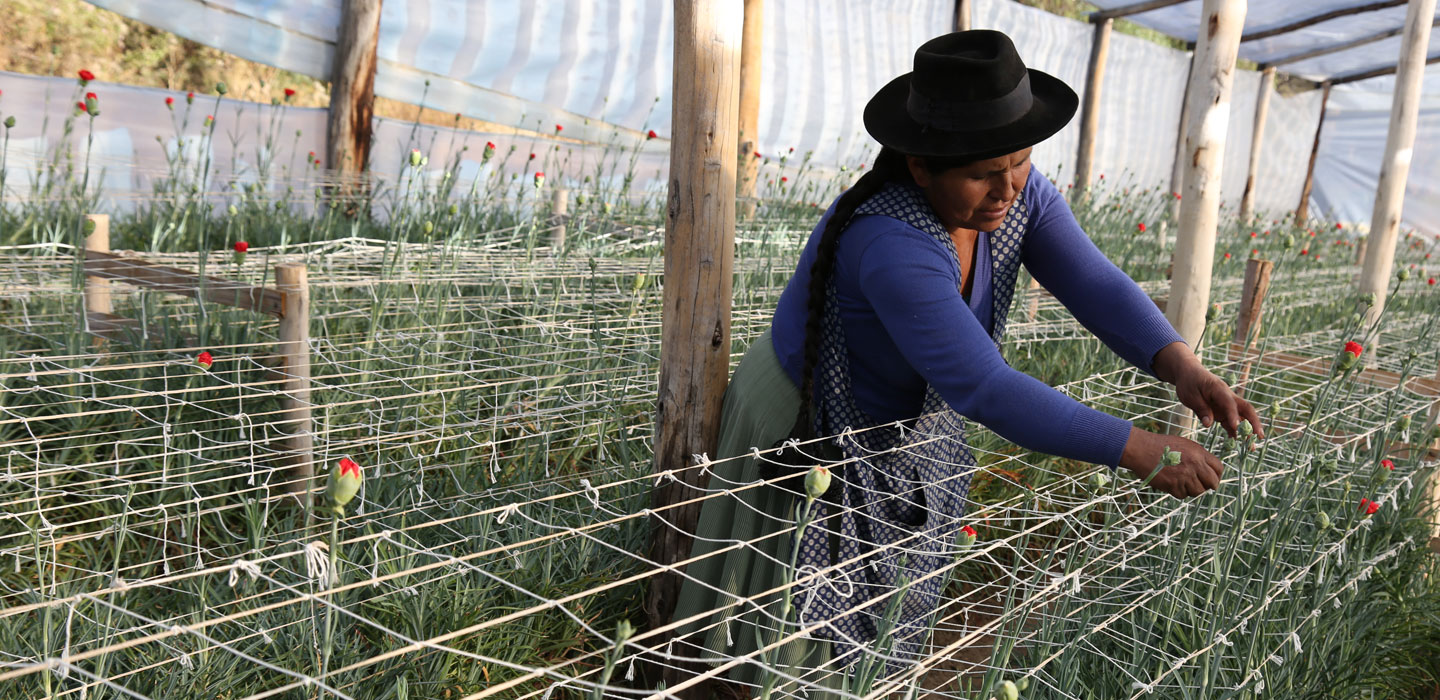IFAD-funded project to combat climate change, increase staple food production and enhance Bolivia’s food security
IFAD Asset Request Portlet
ناشر الأصول
IFAD-funded project to combat climate change, increase staple food production and enhance Bolivia’s food security
24 مارس 2022
Rome, 24 March 2022 – The UN’s International Fund for Agricultural Development (IFAD) and the Government of Bolivia have signed a financing agreement that initiates the implementation of the ACCESOS Rural Project. This rural development intervention will help Bolivian small-scale farmers counter the great impact of climate change on the country’s rural areas to increase staple food production, thus enhancing food security.
The total project investment will be US$26.5 million dollars ($23.6 million from IFAD funds) and is expected to benefit more than 19,000 families from the departments of Chuquisaca, La Paz, Cochabamba, Potosí and Tarija over the next five years.
Specifically, ACCESOS rural will target 430 communities in 35 different municipalities of the above-mentioned departments and will focus on improving the production of potatoes, tomatoes, onions, broad beans, corn, apples and peaches. These agricultural products have been identified as priorities due to their key role in the country’s food security, as they are among the most demanded in the domestic market and, therefore, more prone to inflation.
“Facilitating small-scale farmers’ access to markets and dealing with problems such as low productivity and vulnerability to climate change is needed to guarantee healthy and accessible food for everyone in Bolivia. If we want the country to enjoy a resilient food system, we must invest in their productive capacities, adaptation to climate change and market access, as they provide near 80 per cent of the Bolivian food basket,” said IFAD’s Country Director for Bolivia, Anni Mandelin.
ACCESOS Rural will create opportunities for small-scale farmers to strengthen their organizational and productive infrastructure. The project will provide funds and specialized technical assistance with the main objectives of improving farmers’ resilience by adapting their production systems to the effects of climate changes and extreme weather phenomena such as droughts, floods, frosts and hailstorms. It will also help to adapt their production to risks linked to price fluctuations. Ultimately, ACCESOS Rural responds to the country's objective of reducing imports.
To complement these direct investments in small-scale farmers, the project will seek to strengthen the capacities of the implementation agency, the Ministry of Rural Development and Lands (MDRyT, by its Spanish acronym) to provide key services for farmers, such as an early climate warning system, price monitoring and insurance. The project will also have a nutrition component and will pay special attention to the inclusion of vulnerable groups such as women, youth and indigenous people.
The ACCESOS Rural project builds on the experience of the ACCESOS Program, a $59 million rural intervention implemented between 2014 and 2019 that benefited more than 31,000 families in 52 Bolivian municipalities, improving their food and nutritional security, increasing their income and strengthening their resilience to climate change.
Since IFAD started its engagement with Bolivia in the 1980s, the Fund has invested in 14 projects in the country with a total value of $291.52 million ($164.57 million from IFAD funds), benefitting more than 277,460 rural families.
Press release No.: IFAD/14/2022
IFAD invests in rural people, empowering them to reduce poverty, increase food security, improve nutrition and strengthen resilience. Since 1978, we have provided about US$23.2 billion in grants and low-interest loans to projects that have reached some 518 million people. IFAD is an international financial institution and a specialized United Nations agency based in Rome – the UN’s food and agriculture hub.
A wide range of photographs of IFAD’s work in rural communities are available for download from its Image Bank.
